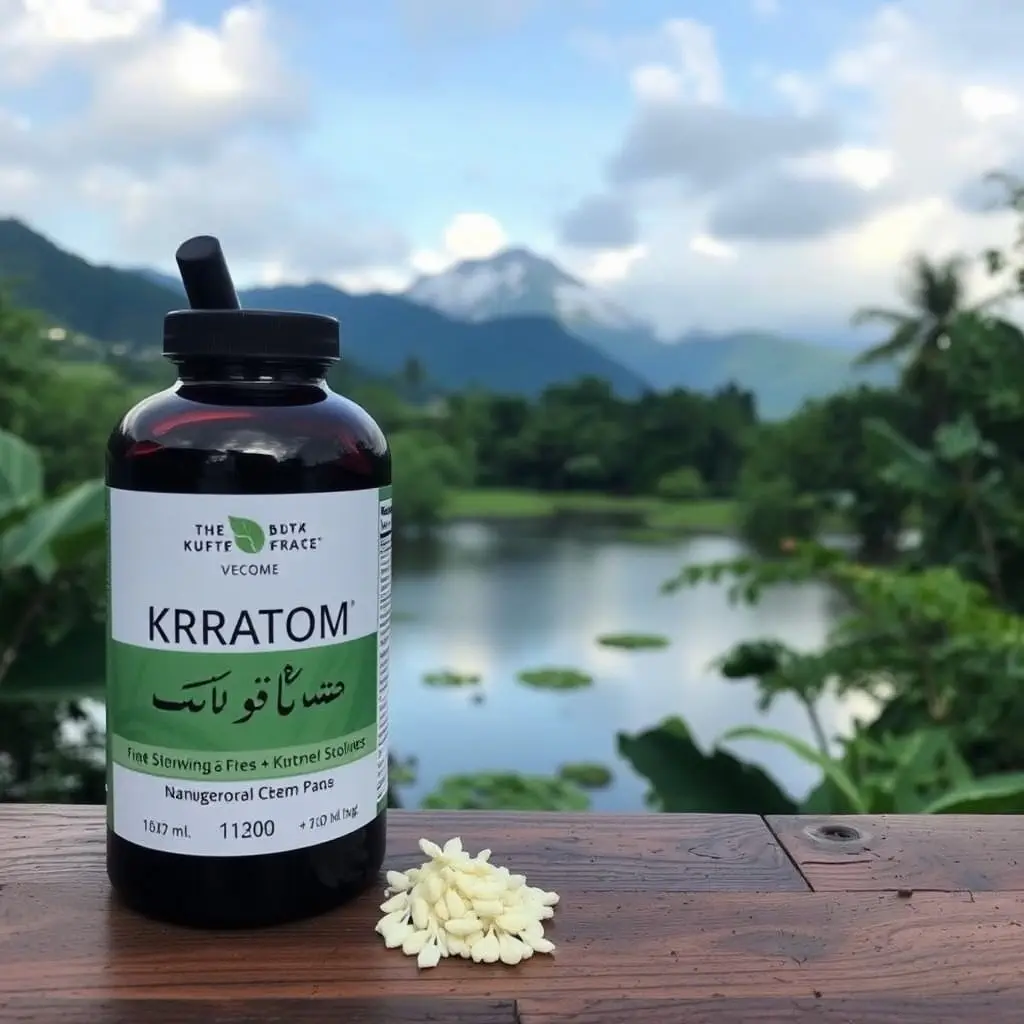Chronic Fatigue Syndrome (CFS) poses diagnostic and treatment challenges, with ongoing research exploring the potential of kratom, derived from Mitragyna speciosa, as a therapeutic option due to its opioid receptor interactions that offer both stimulant and sedative effects. While patient reports suggest benefits in symptom management and quality of life improvement, it's crucial to consider the legal status of kratom when traveling, as its legality varies significantly by state and country. This necessitates careful planning for those who wish to use kratom while away from home, including verifying its legal standing at the destination and during transit. The U.S. Food and Drug Administration (FDA) has classified kratom as a Schedule I controlled substance in certain jurisdictions, highlighting the importance of staying informed about legal changes. When traveling with kratom, it should be carried in carry-on luggage, properly labeled, and declared to transportation security administration (TSA) officials. Safety and dosage are key considerations, as are potential environmental impacts on kratma's efficacy during travel. Always consult with healthcare professionals for personalized medical guidance and ensure compliance with local laws regarding the use of kratom in managing CFS symptoms.
Chronic fatigue syndrome (CFS) presents a complex challenge for those affected, characterized by debilitating fatigue that is not alleviated by rest. In the quest for effective management strategies, individuals are increasingly exploring alternative treatments, with kratom emerging as a potential adjunct therapy. This article delves into the multifaceted role of kratom in managing CFS symptoms, while also addressing the legal considerations and safety aspects when incorporating this botanical into one’s health regimen, especially concerning travel with kratom. We will guide readers through integrating kratom into their self-management strategy, focusing on optimal dosage, beneficial strains, and crucial precautions to ensure a balanced approach to CFS care. Understanding the nuances of kratom’s potential in the context of CFS management is key for those seeking new avenues for relief from the condition’s pervasive effects.
- Navigating Chronic Fatigue Syndrome: Exploring Kratom as a Management Tool
- The Legal Considerations and Safety of Traveling with Kratom
- Integrating Kratom into Your CFS Self-Management Strategy: Dosage, Strains, and Precautions
Navigating Chronic Fatigue Syndrome: Exploring Kratom as a Management Tool
Navigating Chronic Fatigue Syndrome (CFS) can be a complex and challenging journey for those affected, as the condition often defies conventional diagnostic methods and treatment approaches. One emerging topic in the realm of CFS management is the potential role of kratom, a botanical supplement derived from the leaves of Mitragyna speciosa, a tree native to Southeast Asia. Kratom interacts with the body’s opioid receptors and has been traditionally used for its stimulant and sedative effects, which might offer relief to individuals with CFS. While the scientific community continues to research the efficacy and safety of kratom, anecdotal evidence suggests that some patients find alleviation from fatigue and improvements in their quality of life when incorporating kratom into their management regimen.
For those considering kratom as a management tool for CFS, it’s important to approach its use with caution and informed guidance. One practical consideration is the legality of traveling with kratom, as its status varies by state and country. Travelers interested in using kratom should first verify its legal standing in their destination and ensure they are complying with local laws. Additionally, it’s crucial to consult with healthcare providers before integrating kratom into any treatment plan, given its potential interactions with other medications and the need for personalized medical advice. Proper dosing and careful monitoring of effects are essential to safely navigate the benefits and risks associated with kratom use in managing chronic fatigue syndrome.
The Legal Considerations and Safety of Traveling with Kratom
When considering the management of chronic fatigue syndrome with kratom, it is imperative to navigate the legal landscape surrounding its possession and travel. Kratom, a botanical supplement derived from the leaves of Mitragyna speciosa, has gained attention for its potential therapeutic properties. However, its legal status varies across different jurisdictions within the United States and internationally. As such, individuals interested in traveling with kratom must first verify its legality at their destination and during transit. The U.S. Food and Drug Administration (FDA) has placed certain restrictions on kratom, categorizing it as a Schedule I controlled substance in some states. Therefore, it is crucial to stay updated on the latest regulations, as these can change.
For those planning to travel domestically or internationally with kratom, adhering to the legal requirements is paramount. Travelers should be aware that carrying kratom may be subject to scrutiny by transportation security administration (TSA) officials. To mitigate potential issues, it is advisable to pack kratom in your carry-on luggage and clearly label it with the accurate product description. Additionally, travelers should consult with a legal expert or refer to the FDA’s guidelines to ensure compliance with all relevant laws and regulations. Safety in travel with kratom also involves considering the dosage and form of ingestion, as well as understanding how the change in environment might affect your body’s response to the supplement. Always prioritize adherence to legal standards and personal safety when incorporating kratom into chronic fatigue syndrome management while on the move.
Integrating Kratom into Your CFS Self-Management Strategy: Dosage, Strains, and Precautions
When considering the integration of kratom into your chronic fatigue syndrome (CFS) self-management strategy, it’s crucial to approach its use with a well-informed and cautious mindset. Kratom, derived from the leaves of Mitragyna speciosa, has been reported by some individuals to provide relief from the debilitating fatigue associated with CFS. To effectively manage your symptoms, it’s essential to determine the appropriate kratom dosage for your unique condition. Typically, a small dose can be stimulating, while larger amounts might have a sedative effect, which could be beneficial for sleep or managing pain. The most commonly used strains for CFS include Maeng Da, Borneo, and Bali, each offering varying levels of energy and mood support. It’s advisable to start with a low dosage and gradually titrate upwards, monitoring your body’s response to gauge the efficacy and tolerability.
Before incorporating kratom into your routine, it’s imperative to consult with a healthcare provider. They can provide guidance on safe dosing and help you navigate any potential interactions with medications you may be taking for CFS. Additionally, as kratom is subject to legal restrictions in various jurisdictions, understanding the travel regulations regarding kratom is essential if you plan to travel with it. This includes being aware of the Transportation Security Administration (TSA) guidelines should you need to fly with your kratom supply. Precautions such as proper storage and adherence to local laws are key to ensuring a consistent self-management routine that incorporates kratom without legal complications or loss of your medication. Always prioritize the guidance of healthcare professionals in conjunction with any personal experimentation with kratom for CFS management.
Navigating the complexities of Chronic Fatigue Syndrome (CFS) can be challenging for patients. However, emerging research suggests that kratom may offer a promising approach in managing symptoms. This article has delved into how kratom can fit into one’s CFS self-management strategy, including considerations for dosage and strain selection. It is imperative to approach the use of kratom with caution, taking into account its legal status—such as the ability to travel with kratom—and potential safety concerns. As with any treatment, consulting healthcare professionals is crucial before integrating kratom into one’s health regimen. By staying informed and adhering to best practices, individuals with CFS can consider kratom as a tool in their arsenal for symptom relief.






